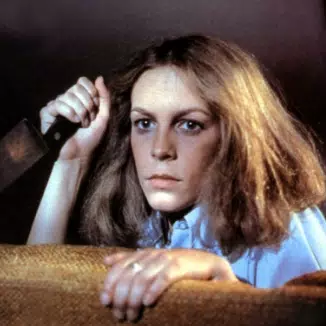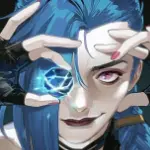The recent reveal of the first trailer for "Mufasa: The Lion King" has generated a palpable surge of anticipation. This film, a prequel to the 2019 photorealistic animated version of "The Lion King," delves into the growth journey of Simba's father, Mufasa, from an unknown cub to the respected sovereign of the Pride Lands — a narrative so simple and obvious that everyone can tell from the title.
The trailer offers glimpses of Mufasa at various life stages, accompanied by his friends Pumbaa, Timon, Rafiki, and Zazu—all males. Somehow unsurprisingly, lionesses are conspicuously missing. However, quite counterintuitively, Beyoncé and Blue Ivy Carter, who voiced Nala and her daughter Kiara, are spotlighted as critical members of the cast.
Watching the trailer, I can’t help but wonder: What sets Mufasa's story apart from Simba's? Given the matriarchal nature of lion societies and the crucial roles lionesses fulfill, is there a need for another tale revolving around a male lion's ascension? If Disney acknowledges the commercial viability of Beyoncé and Blue Ivy Carter's performances, why not spin a standalone narrative around Nala or Kiara?
For me, a millennial, the animated version of "The Lion King" holds profound meanings. Numerous childhood viewings never diluted the emotional punch of Mufasa's tragic demise at Scar's hands, nor Simba and Nala's romantic evolution from playmates to partners. The later revelation that "The Lion King" is a reinterpretation of Hamlet adds depth to the story, laying bare the corrosive nature of envy and inspiring me through Simba's transformative journey.
Yet my all-time favorite character from "The Lion King" is Nala. Her wisdom and exceptional combat skills distinguish her from other female Disney characters of the same period. However, it is profoundly disappointing that after becoming Simba's partner, Nala transitions into a typical maternal role who supports and advances her partner’s victories. Since I became a feminist, I have been even more doubtful about Nala's shift to a secondary role.

My doubt stems from an enlightened understanding of lion pride dynamics. As research on lion prides advances, we notice significant departures from traditional interpretations. A memorable line from "The Lion King" is when Mufasa says to Simba, "Everything the light touches is our kingdom." The film upholds the familiar hereditary system of human monarchy, with Simba naturally succeeding Mufasa's throne after his demise. In this system, Simba is favored over Mufasa's brother Scar in the succession line. The film characterizes Scar's evil not only through Mufasa's murder but also through a subtle, unseen logic: Scar's breach of the hereditary system and his brazen usurpation of a status he does not merit.
Sarcastically, "The Lion King," while portraying lion prides as led by a dominant male, neglects the fact that in reality, lionesses are the backbone and leaders of the pride. Lionesses never leave the pride, unlike male lions who may depart due to age or challenges from other males. Contrary to the film's portrayal, male lions in nature cannot stably control any territory or ensure that their male offsprings inherit their domain. Young male lions are expelled from their birth territory and must conquer other males to join new prides.

Given this enlightened viewpoint, I can no longer accept "The Lion King" as a flawlessly told classic tale. Rather, I perceive it as a façade for patriarchal myths and hierarchies, an artistic expression devoid of the courage to confront the harsh realities of nature. While "The Lion King" exalts the Circle of Life, it insists on placing male lions, who are merely incidental players in a lion pride, as the unequivocal protagonists, relegating the crucial lioness to the backdrop. This contradiction results in the dynamic character of Nala being diminished to a mere silhouette.
Nala undeniably stands as the most influential female character in "The Lion King." Drawing parallels to Hamlet, she is akin to Ophelia, yet she is far more proactive. Nala not only embodies leadership throughout the film, but she even surpasses Simba in physical prowess in various bouts. Compared to the assertive Nala, Simba often appears less mature, and it's Nala's persuasion that propels Simba to reclaim his rightful throne and shoulder his responsibilities. Nala's leadership and combat skills reflect those innately held by real-world lionesses. In a lion pride, the females not only spearhead hunting and territorial defense but also the expansion and demarcation of their territory.


Disappointingly, Nala's wisdom, leadership, and formidable combat skills... all these traits do not play a role in addressing the story's conflicts. "The Lion King" still upholds a male-centric narrative with Simba returning to the Pride Lands, defeating Scar and ascending the throne, all under Nala's guidance. Nala's influence over Simba's actions stems mostly from their established partnership in the romantic song "Can You Feel the Love Tonight". This implies that Nala's impact on the main narrative largely depends on her relationship with the male characters. This starkly contrasts with the natural world where female lions significantly influence the presence of male lions. Why? Why should the narrative prioritize males as the primary actors while females are confined to roles associated with males lacking agency? The reason lies in the male-centric patriarchal narrative.
The gender issues and problems with female character representation in "The Lion King" have sparked extensive debates since as early as its premiere in 1994. In her book "Biblical Allusions," writer Lindsay Bacher proposed a revolutionary idea: make Nala, not Simba, the hero of the Pride Lands. Yet, after 30 years, we're still anticipating a "The Lion King" film featuring a female protagonist like Nala, even as Mufasa gets his own movie. Given the success of films like "Frozen" and "Wonder Woman," which spotlight female heroes, it's perplexing why Disney hasn't followed suit with "The Lion King" and given female characters their independent narratives. It's high time to move away from the stale narrative of male lions being kings.
























































Share your thoughts!
Be the first to start the conversation.